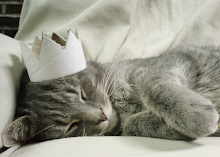Two weeks ago my thirteen year old son visited Hiroshima for the first time. The same day he arrived there by Shinkansen train from Tokyo, I saw a beautiful hardcover book on a street vendor's table for only four dollars. It was John Hershey's Hiroshima, which was one of the first serious books, the first I remember, that I read. I borrowed it from the local Cutchogue library. I have looked over many used books in stores and on the street over the years and would have noticed this volume before. But not until that day did I see it.
I am quite skeptical when it comes to coincidences and intuition, but these things seem to occur at an interesting frequency. I saw another book last week about how we overestimate the importance of coincidences with our minds. I believe we do. Yet there must be something going on even though I was trained by my Christian upbringing to believe in these things in the abstract but not live among them.
After years of schooling where I was told to not speak when I wanted; not eat when I felt like it; wait when I felt the need to relieve myself in the rest room; not to play or socialize when I felt like it; to concentrate when I wanted to rest; to do math when I felt like doing art; to read science when I wanted to study math; to be with dull, bitter teachers I wanted to get away from. . . I, like most Americans, learned to shut up what I felt inside.
Tell me, if you refuse to go the bathroom when your insides scream 'I have to go now,' how are you going to hear a more subtle, quiet message of intuition? I was trained to be counterintuitive for years and years.
Now, I don't know why I found Hershey's book when I did. I don't have to know but I can enjoy the event.
Why intuition you say, I thought you were talking about coincidence. Because intuition is to me, when you listen to your inner self, and some coincidence follows. Though you don't always have to sit down for 45 minutes and ask hmmmm. . . what are you saying, Miss Inner Self? Though sometimes that is what you might want to do.
I recently found out that John Hershey wrote another interesting small book called A Single Pebble, a story of an American engineer who travels the Yangtze to find places to put dams. Now, 50 years later, it is even more poignant with the the damming they are doing to that river. But while this is a touching, tender story, there is another story about Hiroshima and a single pebble that I would like to share, a true story.
A boy and his friends, perhaps it was his sister, were walking in Hiroshima near the end of the war and the boy stopped to pick up a small stone that caught his eye. There was a brilliant flash of light which burnt his friends, but the boy was shielded by a low cement wall as he bent down for his stone; and he lived.
(Atomic bombs can be configured to do different types of damage, only killing people and having the radiation dissipate quickly or giving off little radiation but doing much physical, heat damage or producing radiation that will stay a long time like in Chernobyl. So that is why this is possible.)
I collect stories of stones. One of the important hidden motifs of the Hebrew Scriptures is that of the Even Shetiah, the moving stone. If you have any stone stories, please share them with me.
And the lantern boats in the picture are sailed on the Hiroshima water each summer to not forget the tragedy and perhaps, help deal with it.
I don't think my son was there for the lantern boats but maybe one day he and I will go see them together. For me it will be complicated, my father was a navigator on an airplane which bombed Japan, though he was not on the Enola Gay, the one that bombed Hiroshima and Nagasaki; my wife's parents were in Tokyo at the time, being bombed by planes with conventional bombs.
If I do make it, I will look for a stone to carry in my pocket.




